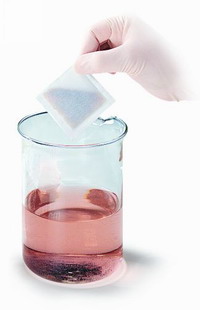Bromide poisoning breaks out in Angola
Nearly 400 people - mostly children - have fallen ill in large outbreak of bromide poisoning.

The first cases were identified in October, the agency said. The patients, more than half of them children under age 15, are being treated at a hospital in Cacuaco, in Angola's north, it said.
Sodium bromide is commonly used in Angola's oil industry, but WHO officials said they were not sure how the patients were exposed.
"We are still in the preliminary stages of investigating this outbreak and have a lot of unanswered questions," said Peter Ben Embarek, a WHO food safety expert.
"The problem is that sodium bromide doesn't smell of anything and it looks like salt, so it would be very easy to confuse it with something else," Ben Embarek said.
WHO said it found extremely high levels of bromide in the patients. Severe poisoning can result in seizures, coma and death. Affected patients had symptoms including extreme drowsiness and an inability to walk unaided.
The blood tests were done in a laboratory in Munich, Germany, and were to be checked by a British laboratory.
Ben Embarek said that patients were being treated with salt solutions to help remove the bromide from their bodies.
Health officials are still receiving a steady stream of new cases - seven more people were reported sick on Thursday. WHO has also sent a team of experts including doctors, epidemiologists and lab experts to Angola to help contain the outbreak.
Subscribe to Pravda.Ru Telegram channel, Facebook, RSS!


